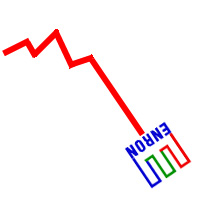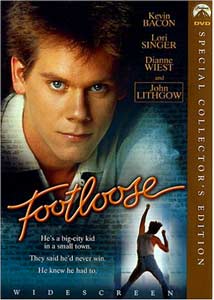En Wrong
 I know most of you are rejoicing in the conviction of the Enron Boyz last week. I know, I know, in a great victory for the judicial system, the prosecutors nailed the elusive top bananas and restored our faith in the judicial system to regulate the greedy dark side of capitalism.
I know most of you are rejoicing in the conviction of the Enron Boyz last week. I know, I know, in a great victory for the judicial system, the prosecutors nailed the elusive top bananas and restored our faith in the judicial system to regulate the greedy dark side of capitalism. Well, sorry. I can't join your celebration. This conviction was, frankly, bull crap. Why?
Ask Lou Abousaid.
Lou is a friend from Tampa. He ran an after hours club in downtown for years... After hours club in the "open real late, no alcohol, sell expensive water, plenty of day glo" sort of way. Catering to the rave crowd.

Now like many small, lame cities that want to be big, lame cities, Tampa is desperately afraid of its youth culture and does everything possible to criminalize it. That's why there is a law against dancing in after hours clubs. Let me say it again, THERE IS A LAW AGAINST DANCING IN AFTER HOURS CLUBS. And it's enforced. That means a lot of police attention - including raids.

After a few years of extra special police attention, Lou started feeling a little harassed. Cops would park in the lot across the street from his club and put on their brights for hours at a time, ticket all the cars on the block while ticketing no other cars in the vicinity, etc. etc.
Lou decided to fight back by filing a few lawsuits against the City and the County. He filed them pro se (no lawyer), researching the cases on his own at the public law library.
Judges HATE pro se defendants. It insults their sense of professional elitism. (I know, I've been one and I produce a podcast for a guy who used to be a Federal pro se law clerk).
What they hate even more is when you do it right. Lou did. And he started winning. A case here, a case there, all of a sudden he was taking money right out of the police e coffers.
So they decided to fight back, by running a big ole' fat DEA sting operation in his club.

They got an informant into place, tending bar in the club. The informant started selling pills. He sold a hundred pills over the course of a year. When Lou found out about it, he fired the guy. When he found someone in his club with pills, he had them destroy the drugs in front of him, then kicked them out.
After their year long operation, the Feds arrested and tried Lou under a crackhouse statute - in the same federal courtroom where he had successfully sued the cops.
In the course of the trial, the prosecutors presented no evidence that Lou had bought drugs. No evidence that he had sold drugs. No evidence that he permitted the sale of drugs, no evidence that he knew about the sale of drugs.
They didn't have to. The law they used to prosecute him only requires that they show "deliberate indifference" to the drugs being sold in the club.
Lou represented himself at trial (a terrible idea - which would you be more likely to believe: "Ladies and Gentlemen of the jury, this man is innocent!" or "Ladies and Gentlemen of the jury, I'm innocent, trust me!" - if you're ever on trial in criminal court, get a lawyer.)
He lost. He went to federal prison... for never selling anything, never letting anyone sell anything... just for not doing enough to stop it. (He was probably too busy making sure no one was dancing). He got 8 years.
"Deliberate indifference" is the same crime Lay and Skilling were convicted of (the principal crime, anyway). This is bogus law enforcement. If you can't prove that someone did anything, you shouldn't be able to send them to jail.
Andy fastow is the one who actually DID commit the crimes that brought Enron into bankruptcy. He is a liar and a criminal. He cut a deal so the prosecution could nab Lay and Skilling.

The truth is that Lay is an idiot (like his President) and Skilling is an arrogant asshole. That doesn't make convicting people of non-crimes OK.
Just ask Lou Abousaid.





3 Comments:
Wow. You're completely right. I didn't know any of the legal details (my computer's broken and I'm podcast-less; no excuse, I know, but I'm still adapting to getting my news elsewhere). Thanks for the info.
Glad to hear someone is bringing this up - having read Eichenwald's excellent book on Enron, I agree that Fastow was clearly a scumbag and a theif. And in the case of your bar owner, that poor bastard was the target of an obvious set-up. But in Lay and Skillings case (CERTAINLY Skilling) there is no way these guys DIDN'T know that they were completely misleading investors and employees, all the way back to when they lobbied the SEC to change the way they could report income from their new "energy futures" business.
Further, there has to be some accountability to the management when they are giving instructions like "make the money, make our targets, just do it" without bothering to look and see HOW the instructions are carried out. If Tony Soprano says "make this guy go away", just because he doesn't explicitly say "kill him" doesn't make him any less culpable. An extremem example sure, but I'm sure you get the point.
Skilling and Lay knew how the numbers were being massaged, knew that some of the ways debt was being reported were bullshit, and chose to report that misleading information anyway. That's at a bare minimum.
Are they idiots? Apparently, yes - incrdible idiots. Are they arrogant? Most certainly. Are they guilty of crimes for which they should be jailed? I'm not sure, but I think probably, and I'd like to read more about the evidence at trial.
Brad
"If Tony Soprano says "make this guy go away", just because he doesn't explicitly say "kill him" doesn't make him any less culpable."
That's true, but if Tony says "Make me a lot of money" and his captains go kill someone, how culpable is he?
Your argument is that Lay and Skilling knew. My argument is that the prosecution didn't prove they knew... because they didn't have to. And the "head in the sand" crime just doesn't ring true to me.
I agree with you that Skilling was more likely aware than Lay, but the prosecution should have to put on that evidence.
I also see a big distinction between shareholders and employees - which no one seems to acknowledge. I mean, come on, that company had a rate of growth that was ridiculous and unfounded. The stock holders basically said - "damn it, make me lots of money. Don't explain to me how, just keep it coming." I don't see a whole lot of difference between that and what Lay was convicted of.
Employees have a whole different reason to be affiliated with Enron, and a much more legitimate axe to grind in my view.
Post a Comment
<< Home